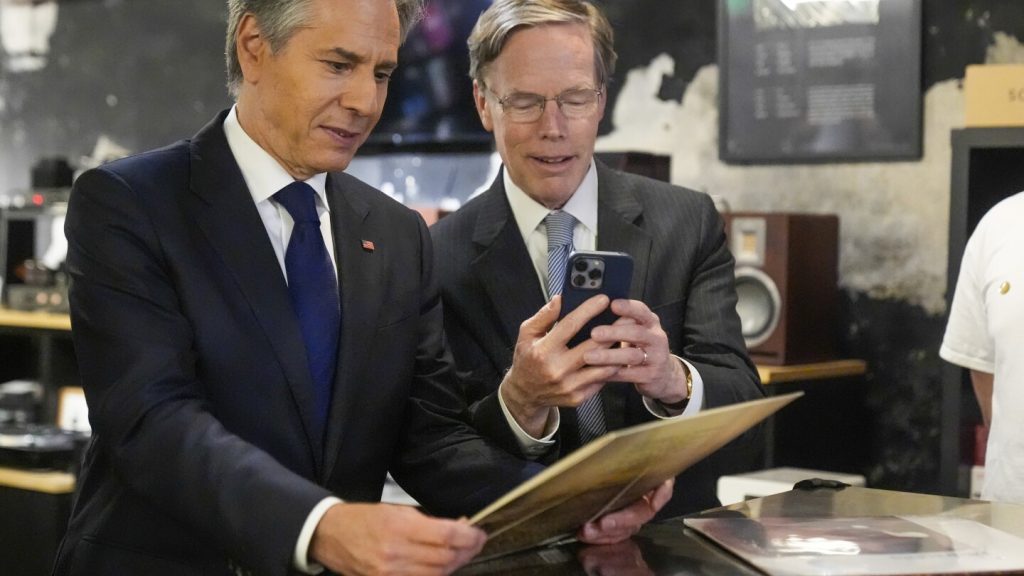U.S. Secretary of State Antony Blinken recently concluded a visit to China, which included a stop at a record store in Beijing where he bought albums by Taylor Swift and Chinese rocker Dou Wei. Blinken emphasized the importance of cross-cultural exchanges, stating that music is a universal connector. However, these purchases also symbolize the divisions between the U.S. and China, as both countries blame each other for the strained relationship. Despite promoting open communication to manage differences, both sides acknowledged the challenges they face in their interactions.
During his visit, Blinken highlighted the significance of U.S.-China exchanges by engaging in various activities such as dining at a famous soup dumpling restaurant in Shanghai, attending a basketball playoff game, and meeting with American and Chinese students. While he acknowledged some improvements in bilateral ties over the past year, Blinken also expressed concerns about China’s policies and practices at both local and global levels. He emphasized that the U.S. would not back down in defending its core interests and values, indicating a firm stance against China.
Blinken raised several key issues during his meetings with Chinese officials, including Chinese overproduction of electric vehicles, the production and export of synthetic opioid precursors, and China’s support for Russia’s defense industrial sector. He warned China that if it continues to support Russia in ways that threaten European security, the U.S. will take action to address the problem. In response, Chinese leaders expressed their frustrations with what they perceived as U.S. interference in areas such as human rights, Taiwan, and the South China Sea. They urged the U.S. to respect China’s sovereignty and development interests.
Despite these challenges, Blinken encouraged engagement at all levels and announced an agreement to hold talks with China on the threats posed by artificial intelligence. He also highlighted the need for more American students to study in China, citing the low number of American students compared to Chinese students studying in the U.S. Blinken emphasized the importance of understanding each other’s language, culture, and history for future collaboration and problem-solving. However, he also emphasized the importance of creating conditions that allow for free and open discussion of ideas, access to a wide range of information, and confidence in safety and privacy.
Overall, Blinken’s visit to China showcased the complexities and tensions in the U.S.-China relationship, with both sides acknowledging the challenges they face in managing their differences. Despite promoting cultural exchanges and open communication, underlying issues such as economic competition, security concerns, and human rights continue to strain the bilateral ties between the two countries. The conversations and interactions during Blinken’s visit reflect the ongoing efforts to navigate these challenges and find common ground while upholding respective interests and values.


